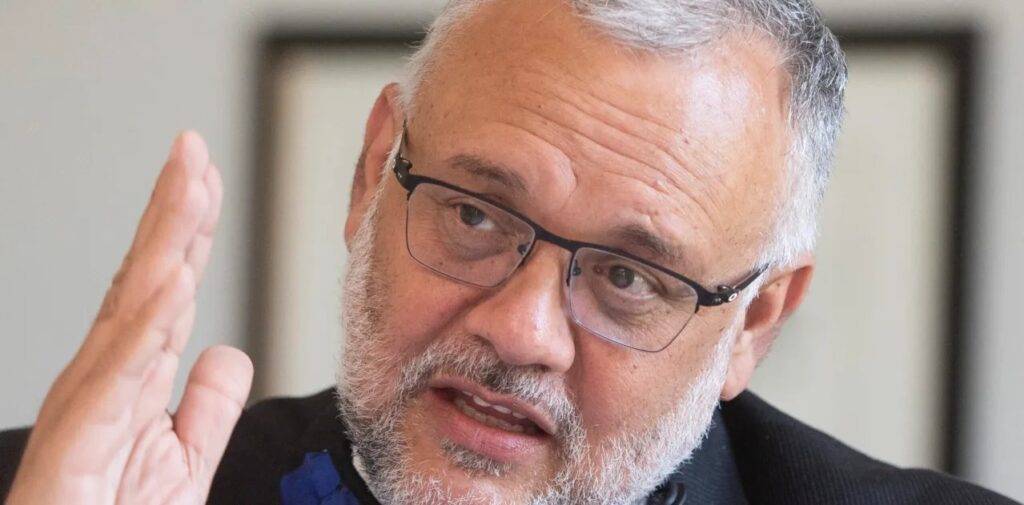
By Imraan Buccus
As the newly appointed South African Ambassador to the United States, Ebrahim Rasool returns to a very different context from his previous tenure between 2010 and 2016. The relationship between SA and the US is increasingly complex, often misunderstood, and in need of careful navigation. It has been fraught in recent times, and could be much more so when Donald Trump assumes the Presidency.
In the wake of the Russian invasion of Ukraine, there was a fevered critique of South African foreign policy in parts of the white liberal media and Western-aligned NGOs like the Brenthurst Foundation and the Institute for Race Relations. It escalated still further immediately after South Africa took Israel to the International Court of Justice. Things got out of hand, and there was a degeneration into conspiracy theory with a number of unevidenced allegations stated as fact, such as the claim that South Africa had been bribed by Iran to take Israel to the ICJ, that South Africa was providing weapons for Russian rather than receiving them for the battle against Islamists in Mozambique, that the left-leaning publication New Frame was driven by the hidden hand of Russia and China and so on.
Things should never have become so fraught. In reality, South Africa’s foreign policy is frequently misinterpreted, both in the Global North, within our own continent and at home. There are delicate balances to strike – between the commitments to South-South solidarity. In a series of closely argued articles, Nontobeko Hlela, one of our best writers on foreign policy, has made it clear that South Africa is genuinely committed to non-alignment and working with all the major powers in an increasingly multi-polar world.
However, this will probably not be understood in Washington after Trump takes office in January. In a recent conversation, Rasool emphasised that the U.S. is indeed a partner of choice for South Africa but not SA’s exclusive partner. He explains that SA seeks a diverse portfolio of international relationships, as is befitting of our status and aspirations. While the U.S. may not be our number one trading partner, the fact remains that 70% of our exports to the U.S. are value-added, manufactured goods – a crucial driver of job creation in our economy grappling with an unemployment crisis.
Rasool disagrees with the notion that South Africa’s relationship with China comes at the expense of our ties with the U.S. In fact, 80% of our exports to China are raw materials, whereas the relationship with the U.S. is far more industrially beneficial. Our economic policy is intrinsically linked to the health of our exports to the American market.
Rasool also takes the view that it would be unwise to caution against conflating President Trump’s rhetoric on tariffs with an inherent anti-Africa posture. The dynamics at play are far more complex, rooted in a transactional, rather than ideological, approach to international relations. As we navigate this new era, we must be pragmatic and clear-eyed, understanding the realities of dealing with a mercurial superpower driven by narrow self-interest.
South Africa’s principled stance on the world stage with regard to Palestine – our newly revived moral authority as a credible voice on issues of global justice – has sometimes come at a price. We have had to compensate for the failure of natural allies, such as nations in the Middle East, to uphold the rights of the Palestinian people. This is a burden we have shouldered with conviction, earning our stripes as a reliable, values-driven actor in international politics.
Yet, our anti-imperialist stance need not be a megaphone approach. It must be rooted in the realities of today’s world – a world that demands a more equitable global order. Even our calls for reform of institutions like the United Nations Security Council must be seen through this pragmatic lens. We will not make progress against the US under Trump and an increasingly right-wing Europe with strident language and postures.
As Rasool prepares to take up his position, he is mindful that our foreign policy must remain practical, pragmatically anti-imperialist, and attuned to the transactional nature of the current American leadership.
Ultimately, South Africa’s diplomatic links to the United States must be cultivated with a delicate touch. We must learn to traverse the contours of what it means to be in a transactional relationship with the world’s most powerful leader – one who is driven by narrow self-interest rather than lofty ideals. It is a challenge, but one SA would be prepared to take on with the steadfast commitment that has come to define South Africa’s role on the global stage.
Rasool’s pragmatic approach seems wise, and we can only wish him luck as South Africa navigates what are sure to be choppy waters ahead on the global stage.
Dr Buccus is the editor of Al-Qalam.










